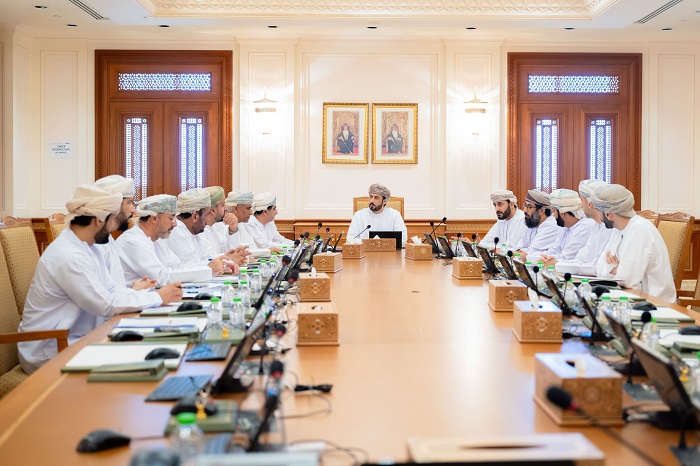
Muscat: The Bureau reviewed held its 12th regular meeting of the second annual sitting of the Tenth Term (2023–2027), chaired by Tahir Mabkhoot Al-Junaibi, Deputy Chairmen of the Council, in the presence of Council Bureau members and Sheikh Ahmed Mohammed Al Nadabi, Secretary-General of the Shura Council.
During the meeting, the Bureau reviewed a number of government responses and official correspondences, along with several reports submitted by the Council’s permanent committees and working groups.
The session also saw the approval of a set of follow-up tools submitted by members of the Council.
The reports discussed was the report of the working team formed to review the benefits of the Social Protection System. Established in January 2025, the team was tasked with assessing the current benefits in light of emerging societal needs and concerns.
The report outlined the team’s methodology, including analysis of relevant literature, benchmarking against international best practices, and identifying legislative and regulatory gaps.
It also presented the outcomes of discussions with stakeholders and experts, and proposed a set of actionable recommendations.
The Bureau also examined the report of the Digital Economy Working Team, which was formed to support Oman’s strategic shift towards a robust digital economy in alignment with Oman Vision 2040. The report included key findings derived from consultations, meetings, and sectoral analyses, as well as recommendations to enhance the digital ecosystem in the Sultanate.
The Bureau reviewed the report of the working group assigned to assess and evaluate various proposals and reports submitted to the Council.
The meeting further covered several reports from the Council’s standing committees.
Among them was the Health and Social Committee’s report on promoting investment in the private healthcare sector.
The report included an overview of the committee’s efforts, data analysis, stakeholder engagements, and key recommendations.
The Bureau resolved to include this report in the agenda of the next Council session.
Also reviewed was the report by the Services and Public Utilities Committee on enhancing the quality of telecommunications services in Oman.
The report analysed the performance of major companies, sectoral financial data, and provided recommendations aimed at improving service quality nationwide.
The Bureau reviewed reports of the Youth and Human Resources Committee, including a proposal to establish a national centre for gifted Omanis, a report on the implementation of the Wage Protection System, and a report addressing the grievances of employees laid off by Al Bashayer Company.
The session also reviewed responses from government entities to Council inquiries.
These included a response from the Minister of Health regarding the lack of employment for biomedical engineering graduates.
The Ministry noted efforts to hire national talents through various recruitment programmes, including on-the-job training, and highlighted the development of a dedicated lab to address HR challenges in the health sector.
The Bureau reviewed a response from the Chairman of the Telecommunications Regulatory Authority (TRA) concerning the cost of internet services.
The response emphasised the Authority’s ongoing efforts to enhance competition, monitor pricing, and introduce tailored packages for different user segments, in line with the Telecommunications Regulatory Law.
The Ministry of Labour also submitted a letter regarding international labour conventions adopted by the International Labour Conference, attaching fifteen instruments for consideration by the legislative authority.
The Bureau considered of external participation reports detailing the Council’s involvement in regional and international parliamentary assemblies, as well as additional follow-up tools and correspondences submitted by Council members.